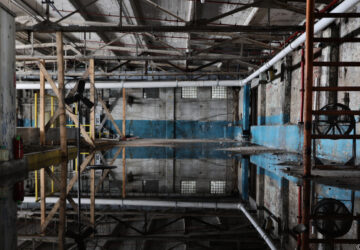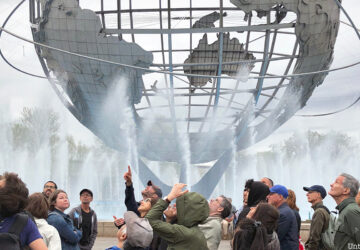2. Bellevue Hospital’s Floating Quarantine Boats
In an attempt to combat tuberculosis, Bellevue Hospital transformed ferry barges into floating wards at the turn of the 19th century. Writer Andrea Barrett who is interviewed in the PBS documentary American Experience: The Forgotten Plague refers to them as “day camps,” where tuberculosis stricken children would be taken. The hospitals and barges were not intended for the dying, but rather targeted for those in the early stages of the disease.
During most of the 19th century, it was believed that tuberculosis, also referred to as consumption, was genetic. It was believed that fresh air, or the “climate cure” could be palliative. It wasn’t until 1892 that the disease was determined to be contagious, when tuberculosis bacillus was discovered, but it would take another decade to convince the medical community. Then would come the isolation policy, moving patients to sanatoriums on the edges of the city.





